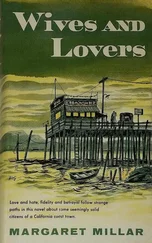D. Lawrence - Sons and Lovers
Здесь есть возможность читать онлайн «D. Lawrence - Sons and Lovers» — ознакомительный отрывок электронной книги совершенно бесплатно, а после прочтения отрывка купить полную версию. В некоторых случаях можно слушать аудио, скачать через торрент в формате fb2 и присутствует краткое содержание. ISBN: , Жанр: Языкознание, на английском языке. Описание произведения, (предисловие) а так же отзывы посетителей доступны на портале библиотеки ЛибКат.
- Название:Sons and Lovers
- Автор:
- Жанр:
- Год:неизвестен
- ISBN:9783742901897
- Рейтинг книги:4 / 5. Голосов: 1
-
Избранное:Добавить в избранное
- Отзывы:
-
Ваша оценка:
- 80
- 1
- 2
- 3
- 4
- 5
Sons and Lovers: краткое содержание, описание и аннотация
Предлагаем к чтению аннотацию, описание, краткое содержание или предисловие (зависит от того, что написал сам автор книги «Sons and Lovers»). Если вы не нашли необходимую информацию о книге — напишите в комментариях, мы постараемся отыскать её.
Immerse yourself in well-known and popular titles!
Sons and Lovers — читать онлайн ознакомительный отрывок
Ниже представлен текст книги, разбитый по страницам. Система сохранения места последней прочитанной страницы, позволяет с удобством читать онлайн бесплатно книгу «Sons and Lovers», без необходимости каждый раз заново искать на чём Вы остановились. Поставьте закладку, и сможете в любой момент перейти на страницу, на которой закончили чтение.
Интервал:
Закладка:
"Well," she said, "she's about as bad as she can be. It's a boy childt."
The miner grunted, put his empty snap-bag and his tin bottle on the dresser, went back into the scullery and hung up his coat, then came and dropped into his chair.
"Han yer got a drink?" he asked.
The woman went into the pantry. There was heard the pop of a cork. She set the mug, with a little, disgusted rap, on the table before Morel. He drank, gasped, wiped his big moustache on the end of his scarf, drank, gasped, and lay back in his chair. The woman would not speak to him again. She set his dinner before him, and went upstairs.
"Was that the master?" asked Mrs. Morel.
"I've gave him his dinner," replied Mrs. Bower.
After he had sat with his arms on the table—he resented the fact that Mrs. Bower put no cloth on for him, and gave him a little plate, instead of a full-sized dinner-plate—he began to eat. The fact that his wife was ill, that he had another boy, was nothing to him at that moment. He was too tired; he wanted his dinner; he wanted to sit with his arms lying on the board; he did not like having Mrs. Bower about. The fire was too small to please him.
After he had finished his meal, he sat for twenty minutes; then he stoked up a big fire. Then, in his stockinged feet, he went reluctantly upstairs. It was a struggle to face his wife at this moment, and he was tired. His face was black, and smeared with sweat. His singlet had dried again, soaking the dirt in. He had a dirty woollen scarf round his throat. So he stood at the foot of the bed.
"Well, how are ter, then?" he asked.
"I s'll be all right," she answered.
"H'm!"
He stood at a loss what to say next. He was tired, and this bother was rather a nuisance to him, and he didn't quite know where he was.
"A lad, tha says," he stammered.
She turned down the sheet and showed the child.
"Bless him!" he murmured. Which made her laugh, because he blessed by rote—pretending paternal emotion, which he did not feel just then.
"Go now," she said.
"I will, my lass," he answered, turning away.
Dismissed, he wanted to kiss her, but he dared not. She half wanted him to kiss her, but could not bring herself to give any sign. She only breathed freely when he was gone out of the room again, leaving behind him a faint smell of pit-dirt.
Mrs. Morel had a visit every day from the Congregational clergyman. Mr. Heaton was young, and very poor. His wife had died at the birth of his first baby, so he remained alone in the manse. He was a Bachelor of Arts of Cambridge, very shy, and no preacher. Mrs. Morel was fond of him, and he depended on her. For hours he talked to her, when she was well. He became the god-parent of the child.
Occasionally the minister stayed to tea with Mrs. Morel. Then she laid the cloth early, got out her best cups, with a little green rim, and hoped Morel would not come too soon; indeed, if he stayed for a pint, she would not mind this day. She had always two dinners to cook, because she believed children should have their chief meal at midday, whereas Morel needed his at five o'clock. So Mr. Heaton would hold the baby, whilst Mrs. Morel beat up a batter-pudding or peeled the potatoes, and he, watching her all the time, would discuss his next sermon. His ideas were quaint and fantastic. She brought him judiciously to earth. It was a discussion of the wedding at Cana.
"When He changed the water into wine at Cana," he said, "that is a symbol that the ordinary life, even the blood, of the married husband and wife, which had before been uninspired, like water, became filled with the Spirit, and was as wine, because, when love enters, the whole spiritual constitution of a man changes, is filled with the Holy Ghost, and almost his form is altered."
Mrs. Morel thought to herself:
"Yes, poor fellow, his young wife is dead; that is why he makes his love into the Holy Ghost."
They were halfway down their first cup of tea when they heard the sluther of pit-boots.
"Good gracious!" exclaimed Mrs. Morel, in spite of herself.
The minister looked rather scared. Morel entered. He was feeling rather savage. He nodded a "How d'yer do" to the clergyman, who rose to shake hands with him.
"Nay," said Morel, showing his hand, "look thee at it! Tha niver wants ter shake hands wi' a hand like that, does ter? There's too much pick-haft and shovel-dirt on it."
The minister flushed with confusion, and sat down again. Mrs. Morel rose, carried out the steaming saucepan. Morel took off his coat, dragged his armchair to table, and sat down heavily.
"Are you tired?" asked the clergyman.
"Tired? I ham that," replied Morel. "YOU don't know what it is to be tired, as I'M tired."
"No," replied the clergyman.
"Why, look yer 'ere," said the miner, showing the shoulders of his singlet. "It's a bit dry now, but it's wet as a clout with sweat even yet. Feel it."
"Goodness!" cried Mrs. Morel. "Mr. Heaton doesn't want to feel your nasty singlet."
The clergyman put out his hand gingerly.
"No, perhaps he doesn't," said Morel; "but it's all come out of me, whether or not. An' iv'ry day alike my singlet's wringin' wet. 'Aven't you got a drink, Missis, for a man when he comes home barkled up from the pit?"
"You know you drank all the beer," said Mrs. Morel, pouring out his tea.
"An' was there no more to be got?" Turning to the clergyman—"A man gets that caked up wi' th' dust, you know,—that clogged up down a coal-mine, he NEEDS a drink when he comes home."
"I am sure he does," said the clergyman.
"But it's ten to one if there's owt for him."
"There's water—and there's tea," said Mrs. Morel.
"Water! It's not water as'll clear his throat."
He poured out a saucerful of tea, blew it, and sucked it up through his great black moustache, sighing afterwards. Then he poured out another saucerful, and stood his cup on the table.
"My cloth!" said Mrs. Morel, putting it on a plate.
"A man as comes home as I do 's too tired to care about cloths," said Morel.
"Pity!" exclaimed his wife, sarcastically.
The room was full of the smell of meat and vegetables and pit-clothes.
He leaned over to the minister, his great moustache thrust forward, his mouth very red in his black face.
"Mr. Heaton," he said, "a man as has been down the black hole all day, dingin' away at a coal-face, yi, a sight harder than that wall—"
"Needn't make a moan of it," put in Mrs. Morel.
She hated her husband because, whenever he had an audience, he whined and played for sympathy. William, sitting nursing the baby, hated him, with a boy's hatred for false sentiment, and for the stupid treatment of his mother. Annie had never liked him; she merely avoided him.
When the minister had gone, Mrs. Morel looked at her cloth.
"A fine mess!" she said.
"Dos't think I'm goin' to sit wi' my arms danglin', cos tha's got a parson for tea wi' thee?" he bawled.
They were both angry, but she said nothing. The baby began to cry, and Mrs. Morel, picking up a saucepan from the hearth, accidentally knocked Annie on the head, whereupon the girl began to whine, and Morel to shout at her. In the midst of this pandemonium, William looked up at the big glazed text over the mantelpiece and read distinctly:
"God Bless Our Home!"
Whereupon Mrs. Morel, trying to soothe the baby, jumped up, rushed at him, boxed his ears, saying:
"What are YOU putting in for?"
And then she sat down and laughed, till tears ran over her cheeks, while William kicked the stool he had been sitting on, and Morel growled:
"I canna see what there is so much to laugh at."
One evening, directly after the parson's visit, feeling unable to bear herself after another display from her husband, she took Annie and the baby and went out. Morel had kicked William, and the mother would never forgive him.
Читать дальшеИнтервал:
Закладка:
Похожие книги на «Sons and Lovers»
Представляем Вашему вниманию похожие книги на «Sons and Lovers» списком для выбора. Мы отобрали схожую по названию и смыслу литературу в надежде предоставить читателям больше вариантов отыскать новые, интересные, ещё непрочитанные произведения.
Обсуждение, отзывы о книге «Sons and Lovers» и просто собственные мнения читателей. Оставьте ваши комментарии, напишите, что Вы думаете о произведении, его смысле или главных героях. Укажите что конкретно понравилось, а что нет, и почему Вы так считаете.











